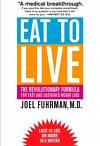Prostate cancer is the second most common cancer affecting men but soy products such as soy milk, tofu and tempeh can reduce the risk of this cancer by as much as 70%.
Zinc: Sesame Seeds, pumpkin seed, almonds, adzuki beans
Omega-3: walnuts, ground flax seed, kidney beans, salmon
Soy: Soymilk, soy yogurt, tofu, tempeh
Vit. C: Raw Bell Peppers, broccoli, caulaflour, Kale, Brussels Sprouts
Lycopene: Tomatoes
You can also get this carotenoid from watermelon, apricots, pink grapefruit, and papaya.
 Vegetables: Eating more vegetables can help lower your risk of BPH. Green leafy vegetables are especially important because they are rich in antioxidants. Cruciferous vegetables like broccoli also reduce the risk of prostate problems, including BPH and prostate cancer. People who eat onion and garlic regularly might also have a lower risk of BPH.
Vegetables: Eating more vegetables can help lower your risk of BPH. Green leafy vegetables are especially important because they are rich in antioxidants. Cruciferous vegetables like broccoli also reduce the risk of prostate problems, including BPH and prostate cancer. People who eat onion and garlic regularly might also have a lower risk of BPH.









































































